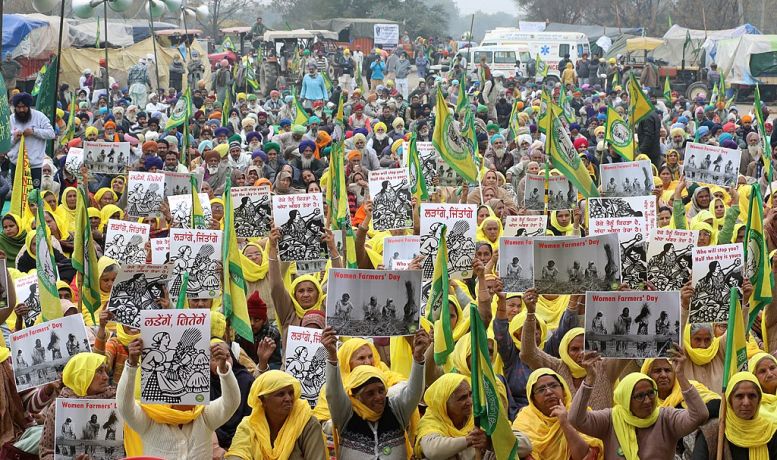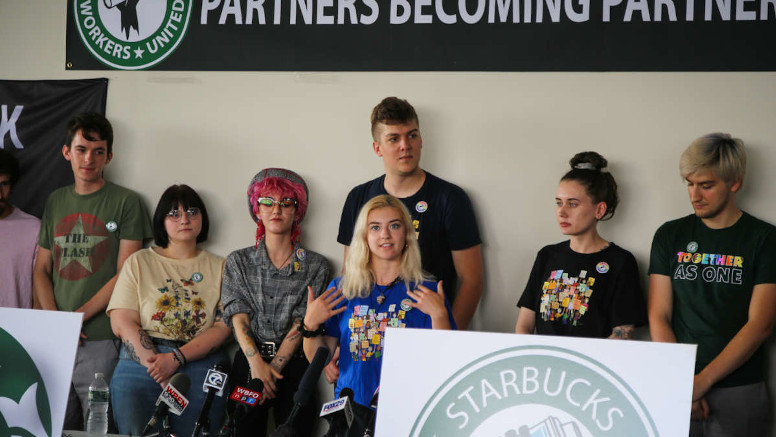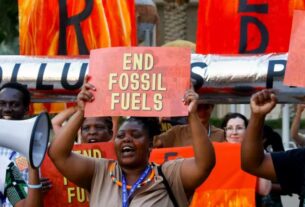Update, October 31: The Canadian government has evidence that the intimidation and assassination plots in the US and Canada were coordinated from the office of India’s Home Affairs run by Amit Shah, India’s “second most powerful man” and Modi’s enforcer.
Bilaterial relations between India and Canada have completely broken down.
The murder of Hardeep Singh Nijjar on June 18, 2023, was the beginning of simmering tensions between the Indian and Canadian governments. On October 14, these tensions erupted into a boil. The RCMP, Canada’s federal police, organized a news conference on Thanksgiving Day, a public holiday, to lay out serious accusations against the Indian government. The RCMP claimed that senior Indian diplomats and consular officials had been working with a criminal network, run by mob leader Lawrence Bishnoi, to carry out targeted attacks and killings. India’s top diplomat, Sanjay Verma, has been implicated.
The criminal activities include murder, death threats, coercion, drive-by shootings, arson and extortion, activities that pose “a significant threat to public safety.” The RCMP cited over a dozen credible threats to life. There are suspicions that the murder of Sukhdool Singh Gill in Winnipeg on September 20, 2023, is linked to Nijjar’s assassination.
Before going public, the Canadian government shared information with its intelligence partners, especially the US. Initially, in private, Canada presented its evidence to India and requested that diplomatic immunity be removed from some individuals so they could be questioned, and possibly charged. Unsurprisingly the Indian government refused the request and denied all the accusations.
The Canadian government expelled Verma and five other Indian diplomatic staff. India retaliated by expelling six Canadian diplomats, including the High Commissioner of Canada in Delhi, Stewart Ross Wheeler.
Part of a Pattern
There is strong evidence that agents of the Modi government have carried out and planned assassinations in Canada. On June 18, 2023, Hardeep Singh Nijjar, President of the Guru Nanak Sikh Gurdwara (Sikh Temple), was gunned down and killed in his car outside the Gurdwara. Four Indian nationals were charged in May 2024 with Nijjar’s murder.
In September 2023, Canadian Prime Minister Trudeau announced in the House of Commons that there were “credible allegations” that the Indian government was involved in Nijjar’s killing. At the time he did not make the evidence public, although it was widely believed the information came from both Canadian and allies’ intelligence services. Trudeau’s statement on Nijjar was due to concern that information about India’s role would become public and the government would not be seen to be on top of the situation. Canada’s main capitalist newspaper, The Globe and Mail, published a story just hours before Trudeau spoke.
The Indian government described the accusations made in Trudeau’s September statement as “absurd” and “unsubstantiated” and then expelled a senior Canadian diplomat. Soon afterwards India suspended the processing of visas in Canada, which hurt ordinary Indians in Canada as well as potential tourists. Canada withdrew 41 diplomats following threats from India.
On November 29, 2023, India’s international repression was again under the spotlight when the US Department of Justice announced charges against Nikhil Gupta, for plotting with an Indian government agent to assassinate a US Citizen. Gurpatwant Singh Pannun was the alleged victim. On October 17, 2024, the US charged Vikash Yadav with plotting the assassination attempt. The case states that at the time of the plot “Yadav was employed by the government of India’s Cabinet Secretariat, which is a part of the Indian Prime Minister’s Office.” After the charge was laid the Indian government informed the US that the agent has been removed as an Indian government employee. The US evidence strengthened connections between the US plot and the killing of Nijjar in Canada and other planned targets and reinforces some of the evidence that Trudeau had when making his statement in September 2023.
In response to the US charges, India took a more conciliatory tone – after all the US is a much more powerful state than Canada. Arindam Bagchi, on behalf of the Indian government, while not denying the allegations, said they were a “matter of concern,” and such actions were “contrary to government policy.”
Both Trudeau and Biden raised concerns about Nijjar’s killing with Modi before going public, including at the G20 summit held in India in September. However, Modi brushed the issue aside.
There was already widespread concern in Canada’s Sikh community before Nijjar’s assassination, and other Sikhs, in both the US and Canada, have been warned by security forces that their lives are in danger.
These concerns intensified with Trudeau’s public statement. Jagmeet Singh, the leader of the New Democratic Party and a Sikh, made a powerful statement in the House of Commons. Ujjal Dosanjh is a former Federal cabinet member and prominent Sikh, who was nearly killed by an assault by a Khalistan supporter because of Dosanjh’s opposition. He stated that “If you want to portray yourself as Macho Modi, as he has been doing across the world, then I believe that India could do it. I would never have believed that Mr. Nijjar was such a threat to India that India had to come across international borders to kill him, but if it did, that’s absolutely despicable.”
The Modi Regime’s Repression
Indian Prime Minister Modi bases his power on his Hindu chauvinism. He was Chief Minister of the state of Gujarat in 2002 when police stood by while Muslims were murdered in what has been described as a pogrom. The US refused to grant him a visa for nearly a decade for his role in the killings.
In December 2023, 141 opposition members of Parliament were suspended on flimsy grounds. Modi’s regime regularly uses its anti-terrorism law, Unlawful Activities Prevention Act, to harass and arrest journalists. Even world fame is no protection against the regime’s attacks. Renowned author Arundhati Roy, has been charged for “provocative speech.” Modi regularly brands opponent as terrorists.
Once a fringe ideology in India, Hindu nationalism has become the dominant political ideology in the past decade under Modi. He has aggravated religious tensions and steadily eroded the secular principles enshrined in India’s constitution. His Hindu-first politics have bred intolerance and the economy, the world’s fifth-largest and one of the fastest growing, has become more unequal, but the country has become deeply divided. Modi’s Hindu nationalist agenda was seen as a powerful tool for him to win votes in the Hindi heartland. Yet many in Uttar Pradesh, his base of power, spoke of their disgust at Modi’s increasingly anti-Muslim rhetoric out on the campaign trail. His party, the BJP, which ruled India with an iron grip since 2014, lost its majority in the June 2024 election and now has to rely on coalition partners to govern.
The Rashtriya Swayamsevak Sangh (RSS) was founded in India in 1925 by extreme Hindu nationalists influenced by fascism. Modi started his political career with the RSS as an organizer in 1971. The RSS is a backbone of the BJP. In Canada and the US, the RSS has stepped up its activity in reaction to the ban on caste discrimination in Seattle and the widespread support for similar actions across both countries. It had a role in getting California’s Governor to veto anti-caste discrimination legislation there. The RSS fronts have launched campaigns calling for bans on Hinduphobia, in which they include criticisms of caste discrimination. Their use of the description of “Hinduphobia” resembles those who claim criticizing the Israeli government is anti-Semitic. They have directed hate mail at critical Canadian academics.
NDP Leader Jagmeet Singh, after being briefed about the latest RCMP allegations, stated: “we support today’s decision to expel India’s diplomats and … ban the Rashtriya Swayamsevak Sangh Network.”
Khalistan
The Modi government states that people like Nijjar are terrorists because they support an independent Khalistan. The Khalistan movement wants an independent Sikh-dominated state in the Punjab region of India and had significant support in the 1970s and early 1980s, with increasing violence. In 1984 activists occupied the Golden Temple, an important Sikh centre, in Amritsar. On June 5, 1984, the Congress party, which dominated the Indian government of Indira Gandhi, ordered the storming of the temple. This was followed by days of mutinies by Sikh soldiers, rioting and killings, leaving thousands dead. Indira Gandhi, the Prime Minister, was assassinated on October 31, 1984, by two Sikh bodyguards. Since then, support for Khalistan has dwindled in Punjab but has continued in the Sikh diaspora with significant support in the US and Canada.
Nijjar was and Pannum is a supporter of Sikhs for Justice, an organization that campaigns for Khalistan. No credible evidence has ever been produced that Nijjar did more than peacefully support Khalistan. He was involved with organizing a referendum on Khalistan in the Sikh diaspora in Vancouver. Pannum has made statements such as urging people not to fly with Air India which, given the Air India bombing in 1985, could be seen as a terrorist threat. The Air India bombing killed 329 people and Canada’s security forces — CSIS and RCMP — totally failed to either prevent it or convict the organizers.
International Socialist Alternative defends the democratic right of people to put forward their views without risk of assassination, while opposing acts of terrorism, whether by the state or non-state organizations. Nothing that Nijjar or Pannum did or said justifies their murder or plot to murder. We do not advocate for a separate Khalistan but if the majority of Sikhs in Punjab supported it, we would support their rights.
What is Going On?
Why did the Modi regime decide to damage relations with two important allies and economic partners in going after Nijjar and Pannum? Khalistan is not currently a major issue in India and poses no threat to Modi or Indian unity at this stage.
The background is Modi’s determination, before the 2024 election, to present himself as a strong Hindu nationalist and supporter of Hindutva — the view that Hindus should dominate India — which is core to the BJP’s and RSS’s ideology.
Modi’s aim was to mobilize support in India. In part, he sought to counter the humiliating defeat inflicted on him by the Indian farmers, in which Sikhs were prominent. He had previously tried to discredit the farmers’ mass movement with claims that it was influenced by Khalistani ideas.
Modi gained support in India for his actions against Sikhs internationally. The main opposition party, Congress, gave Modi support stating that there can be “no compromise of any kind in our country’s fight against terrorism.” Almost all of India’s media followed Modi, claiming that Nijjar was a terrorist, and it was good he was dead. A headline on June 19, 2023, in The Indian Express, read “Khalistan terror outfit chief Hardeep Singh Nijjar, one of India’s most wanted, killed in Canada.” In this present conflict between Canada and India, the Congress Party appears to be siding with Modi; as one leader stated, the “attitude of the current Trudeau administration has been most unhelpful to the trajectory of Canada-India relations.”
Modi relies on chauvinism and repression to boost his support, posing grave dangers for many non-Hindus in India, as well as for union and democracy activists.
Modi’s actions also need to be seen in the context of the inter-imperialist conflict between two blocs led by the US and China.
Canada and the US have been courting Modi and the Indian government as part of the growing inter-imperialist conflict. Canada was in the middle of negotiating a trade deal before Nijjar’s assassination. Biden rolled out the red carpet for Modi in September 2023 following a White House briefing that reaffirmed “the close and enduring partnership between India and the United States” and Biden’s “support for a reformed UN Security Council with India as a permanent member.”
The border conflict between India and China and China’s massive investment of $62 billion in Pakistan through the Belt and Road initiative has pushed India closer to the US. Indian capitalism hopes to attract Western investment moving out of China. India is part of the Quad military agreement and dramatically increased arms imports from the US. Historically, India bought most of its weapons from the USSR and Russia. In 2008 India spent no money on US weapons but in 2020 it spent $20 billion.
It is likely that because of the inter-imperialist conflict, Modi assumed that neither Canada nor the US would criticize his government’s actions. It is true that neither Canadian nor US imperialism wants a conflict with India. Nijjar’s killing and the revelations in the US court and by the RCMP have created an unwanted headache for Biden and especially for Trudeau. However, governments generally are unhappy when the murder of a citizen is carried out or plotted by a foreign government on their territory.
No Confidence in Any Ruling Class
While the Canadian and US governments have protested India’s actions, they are not innocent of killing people abroad or of repressing people at home. Canada was heavily involved in the coup that overthrew Haiti’s democratically elected and popular president Aristide in 2004. This coup contributed to the current misery for the Haitian people. The US has too many overseas killings to list.
We have no expectation that Biden or the next US President, Trudeau or Modi will stand up for the needs or democratic rights of the working class and poor farmers. It is workers’ unity and solidarity that offers the working people of India, the US and Canada a way out of the horrors of capitalism. The struggle for socialism is international.



